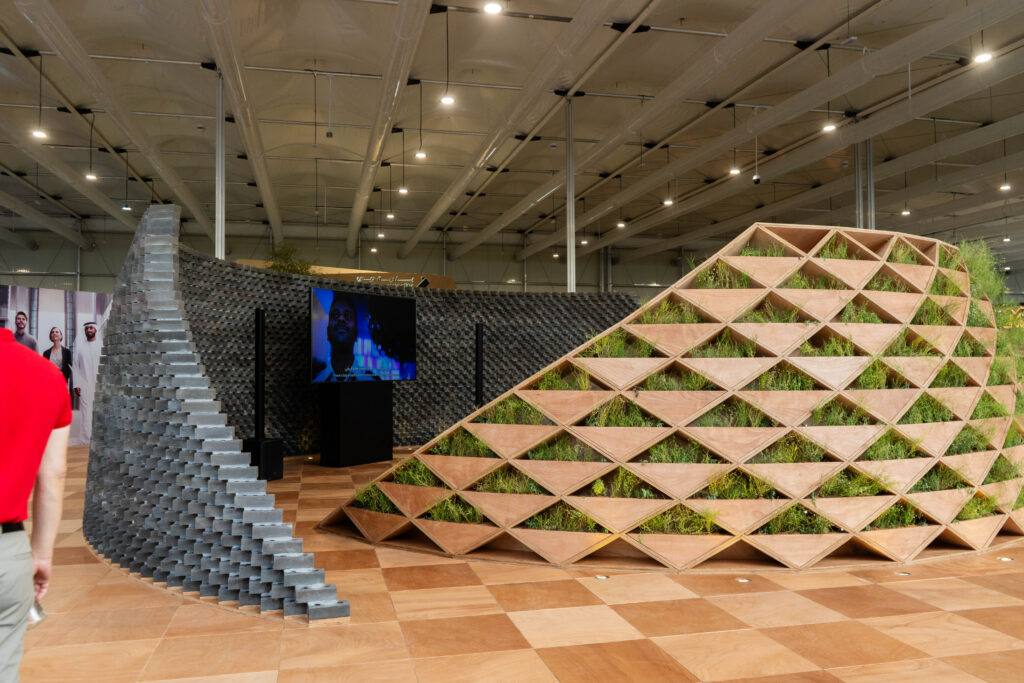SCOTS company Kenoteq built a brick wall using construction waste which is being used as a centrepiece of one of the major showcase spaces at COP28.
The wall is built from a total of 7,000 bricks made using recycled waste from the construction industry.
It is paired with a living wall containing greenery, giving Dubai Holding a sustainable space to engage with its guests at the 28th United Nations Climate Change Conference.

Kenoteq has also built a 1,000-brick demonstration wall for Heriot Watt University’s ClimateHub & Cleantech Exhibition at its Dubai campus.
This is being used as a base during COP28 by a range of delegates including First Minister Humza Yousaf and net zero secretary Màiri McAllan.
Use of the K-BRIQ instead of traditional clay bricks at the climate conference has delivered carbon savings of around three tonnes.
Total production to date has made carbon savings of nearly 88 tonnes, demonstrating the enormous potential impact of its widespread use.
The two Dubai structures follow on from the success of the company’s demonstration wall built for the COP26 climate conference in Glasgow in 2021.
Kenoteq, which was spun out from Heriot-Watt University in 2019, produces its bricks at a waste recycling site near Edinburgh.
The company’s bricks, which won Sustainable Design of the Year in the 2022 Dezeen Awards, have also been incorporated into a range of statement interior projects.
So far 200,000 K-BRIQs have been produced, recycling 440 tonnes of construction and demolition waste – the equivalent of 6790 filled household wheelie bins.
Professor Gabriela Medero, co-founder of Kenoteq, is attending COP28 to highlight circular economy solutions to international companies and policymakers.
She said: “Embracing the circular economy will be a key factor in limiting the rise in global temperatures and reaching net zero.
“Kenoteq’s innovation has an important role to play in reaching those goals.
“COP28 is a great opportunity to show builders, architects, designers and government policymakers how they can slash their environmental impact by reconsidering their material choices.
“Our K-BRIQ produces 95% less embodied carbon than a traditional masonry brick.
“It is made from recycled construction and demolition waste so it is protecting precious finite raw materials.
“It still delivers comparable strength to a traditional brick and its contents can be recycled again once it’s finished being used.
“The infrastructure in the United Arab Emirates (UAE) and other countries in the region is growing at pace.
“Taking the K-BRIQ to Dubai for COP28 is significant as it shows international businesses first-hand the potential of low carbon construction and design solutions.”